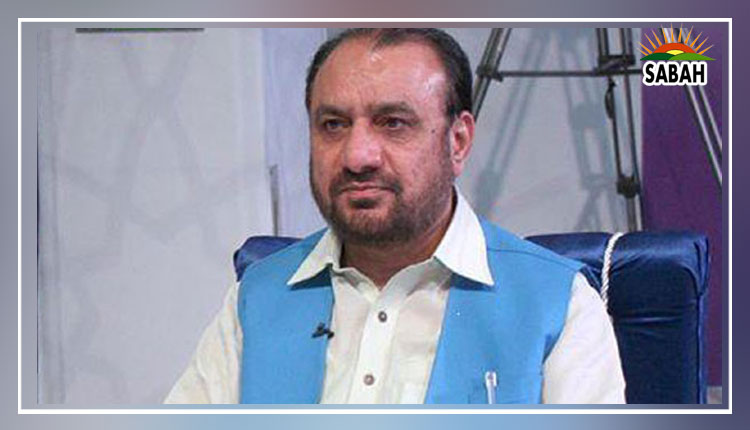Signal – and sanity – lost ….Muhammad Rafeh Hyder
In a world where the internet is as vital as oxygen, Pakistan seems to be content with holding its breath. The recent internet interruption has left the country gasping for a digital breath of fresh air.
The Lahore High Court has finally taken notice, as though it just realized that a nation cannot thrive on smoke signals and carrier pigeons. But before we critique the present, let’s take a nostalgic stroll through Pakistan’s history of internet bans – a saga that might as well have been penned by a time traveler, a Pakistani Doctor Who that traumatizes civilizations rather than saving them.
Let’s look at 2012, the year Pakistan decided it was time to take a stand – against YouTube. In a move that might have been inspired by a medieval approach to problem-solving (if it offends, burn it), the entire platform was banned for a solid four years. Now, while the offence was indeed serious, the decision to ban the entire platform for four long years was like using a sledgehammer to crack a nut – because, clearly, the best way to ensure the nation’s moral purity is to deprive it of TED Talks and cooking tutorials.
But the real comedy lies in the fact that, while the ban was supposed to be a mighty blow to the forces of evil, it was more of a minor inconvenience for those with a passing knowledge of VPNs. For the rest, well, they were left to wonder if the dark ages had returned, with their only connection to the wider world being state-sanctioned television broadcasts that somehow never managed to fill the gaping void left by YouTube’s absence.
And then there was TikTok, the app that launched a thousand careers, turned ordinary people into internet sensations, and gave the world more lip-syncing videos than it ever asked for. In 2020, Pakistan decided to pull the plug on this global phenomenon for six months. The reason? Inappropriate content. The result? Thousands of aspiring creators cut off from their platforms.
TikTok wasn’t just a place for teenagers to share dance routines; it was a money-making platform where young Pakistanis could turn creativity into cash and recognition. But the powers that be decided that the potential risks outweighed the benefits, and so the ban hammer came down, leaving a generation of digital entrepreneurs scrambling for a new way to reach their audience. As it turns out, stifling creativity might not be the best way to boost an economy – or a country’s global image.
Fast forward to 2023, when the Pakistan Telecommunication Authority, in a fit of something that might have been called inspiration, decided to ban Wikipedia for two whole days. But while the rationale was old, the reaction was new.
Premier Shehbaz Sharif, declared that a blanket ban was not the way to solve problems. It was as if a tubelight finally lit up, illuminating the realization that maybe, just maybe, pulling the plug on an entire repository of human knowledge might be a tad excessive. The ban was lifted after public outcry, but the damage was done. Pakistan had once again signaled to the world that it would rather cut off its nose to spite its face than find a more reasonable solution.
And then there’s Twitter, the place where everyone from celebrities to that guy who lives down the street shares their unfiltered thoughts. In 2024, officials decided they had heard enough and turned down the volume. Six months later, the silence continues, with the unofficial reason (the ban has been categorically denied) being the need to protect the public from harmful content.
Of course, the more cynical among us might suggest that the real reason has less to do with protecting the public and more to do with ensuring that the public doesn’t have too much to say, especially about certain topics that might not be considered polite conversation at dinner parties.
The funny thing about silencing Twitter, though, is that it doesn’t actually silence anyone. It just makes the conversation move elsewhere – into encrypted apps, private groups, and, ironically, even more difficult-to-monitor spaces. It’s like trying to stop a river by building a dam (there is an obvious Pakistani joke here); in the process, the water might just carve out new channels that are even harder to control. So while Pakistan’s Twitter silence might look like a victory for those who prefer their public discourse neat and tidy, it’s more likely to end up as a lesson in the futility of trying to stop the flow of information in a digital world.
The problem with these bans, apart from the obvious inconveniences, is that they reveal a fundamental misunderstanding of how the internet works. You can’t control the digital tide with a few well-placed firewalls and filters; all you can do is make life harder for the people who rely on the internet for education, communication, and even basic survival in today’s world.
One of the most immediate consequences of these digital blackouts is the impact on freelancers who depend on platforms like Fiverr to make a living. With accounts suspended due to inconsistent internet access, many Pakistanis have found themselves suddenly cut off from their livelihoods. In a country where employment opportunities are scarce, and the gig economy offers a vital source of income, these bans are not just inconvenient but devastating. The problem, however, does not just end here. With bans come piracy, and with piracy comes loss of earnings.
Reverting to the internet ban, to add insult to injury, the very ministries and ministers who should be addressing these issues are instead issuing blanket statements denying any such intervention with the internet. They conveniently shift the blame onto users for relying on VPNs, as if the population turned to digital subterfuge out of sheer curiosity rather than necessity. It’s a classic case of gaslighting on a national scale, where the government’s left hand swears there’s no problem while the right hand quietly, and quickly, tightens the screws.
In a country where Quetta still waits for a motorway and tax evasion is practically a national sport, it’s ironic that the state’s primary concern seems to be what you might be whispering into a friend’s ear on WhatsApp. The focus on silencing social media rather than tackling pressing issues like infrastructure and economic reform is not just a misplaced priority – it’s a tragicomedy.
These bans only serve to isolate and cripple the very people who could drive the nation forward. It’s as if someone has decided that if they can’t control the conversation, they’d rather no one have it at all.
The writer is a lawyer.
Courtesy The News












